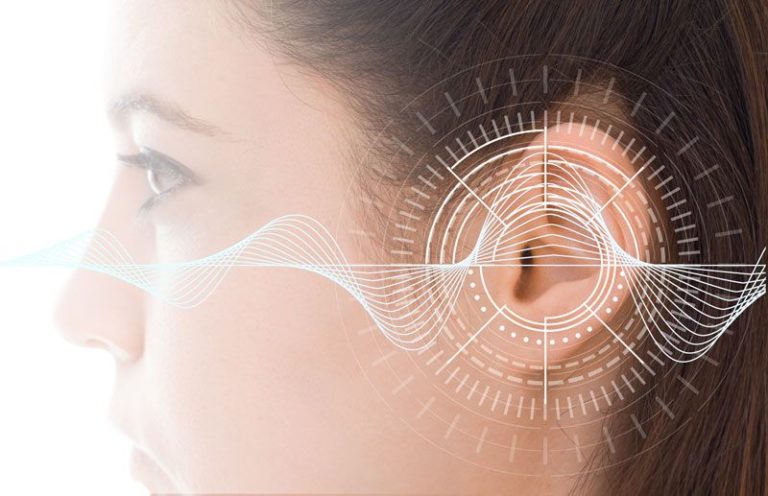If you have sudden, severe hearing loss, you will notice right away that your ability to hear has decreased significantly or disappeared totally in the affected ear. For example, you may snap your fingers next to the affected ear and not hear it, or you may put the telephone receiver against your ear and hear nothing.
If your hearing loss is gradual, symptoms may be more subtle. You may have difficulty understanding conversations, either in person or on the telephone. Family members may complain that you play the radio or TV too loudly. You may ask them to repeat what they say or frequently misunderstand what they are saying.

Some diseases and conditions that cause hearing loss may produce additional symptoms, including:
- Ringing in the ears (tinnitus)
- Discharge or bleeding from the ear
- Deep earache, or pain in the ear canal
- Pressure or a “stuffy” feeling inside the ears
- Dizziness or problems with balance or equilibrium
- Nausea
How to Diagnose Hearing Loss
After you describe your symptoms, the doctor will ask if anyone in your family has (or has had) hearing loss. He/she will want to know if you have been exposed to loud noises, trauma of the ear or head, or ear infections. To rule out the possibility that medications may be the cause, your doctor will review the prescription and over-the-counter drugs you take. The physician will examine you and look closely at your ears. This may include:
- Examination of your ear canal and eardrum using a lighted instrument for looking inside the ears (otoscope)
- The Rinne test, in which a vibrating tuning fork is placed on the bone behind your ear to test for conductive hearing loss
- The Weber test, in which a vibrating tuning fork is placed in the middle of your forehead to help diagnose one-sided hearing loss
- Audioscopy testing, in which the doctor uses a hand-held device to generate tones of various intensities to find out if you can hear them
- Our audiologists will test your hearing sensitivity (with audiometry) and check for middle-ear problems by measuring your eardrum’s ability to reflect sounds (impedance testing). Further testing and treatment will follow.
Palmetto ENT & Allergy offers a variety of high quality hearing aids including ReSound, Phonak and many others.
Palmetto ENT & Allergy provides a complete range of digital hearing instruments, along with high tech specialty products and complementary wireless communications systems, to help patients advance their quality of life through improved hearing.
How to Treat Hearing Loss
Both age-related and noise-related hearing loss tend to be permanent. Depending on the severity of your hearing loss, your doctor may recommend a hearing aid or an implant to improve your ability to communicate with others. A hearing aid amplifies sounds electronically and is effective for many people with age-related hearing loss. Newer digital technology has produced smaller, more powerful devices. A cochlear implant is a device that translates sounds into electrical signals that can be carried by the eighth cranial nerve to the brain.
Certain other forms of hearing loss may be treated medically or surgically:
- Otosclerosis – For mild cases, a hearing aid is usually the first option. In severe cases, one of the small bones is surgically replaced with a tiny piston-like prosthesis.
- Acoustic neuroma – Treatment includes surgery or highly focused radiation therapy.
- Meniere’s disease – There is no cure. Some people with this disease improve with a personalized diet plan (such as limiting intake of salt, caffeine or alcohol), quitting smoking, or medications to reduce fluid retention in the ear. In some cases, surgery may be considered.
- Traumatic hearing loss – A damaged eardrum can sometimes be repaired surgically by using tough, fibrous connective tissue (muscle fascia).
- Drug-induced hearing loss – Stopping the problem medication may reverse hearing loss or prevent it from getting worse.
- Sudden sensorineural hearing loss – In most cases, when the cause is unknown, this condition is treated with steroids.
- Other – A dense plug of earwax can be dissolved or gently removed from your ear canal by your doctor; also, antibiotics can treat hearing loss caused by ear infections.
